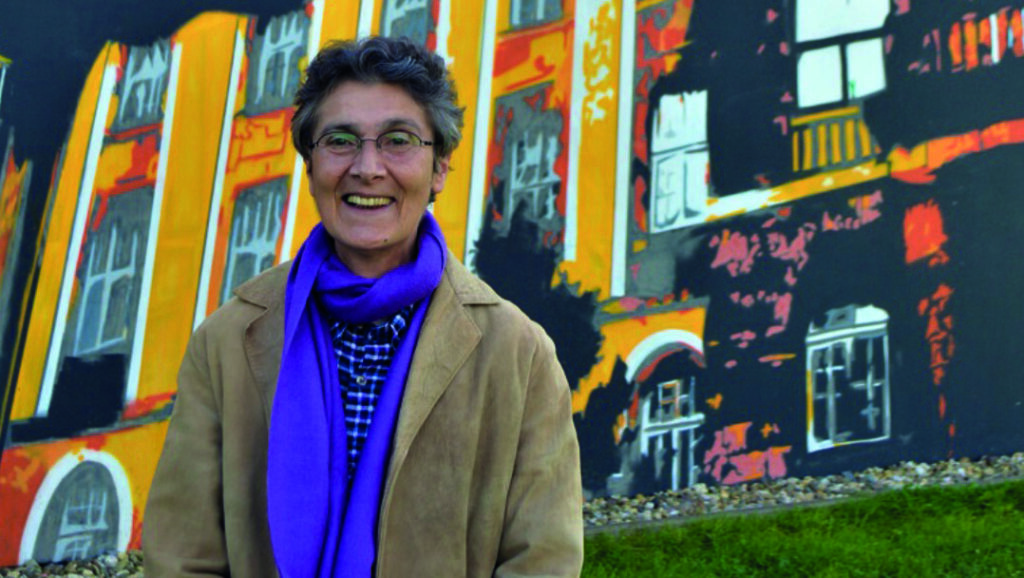Ciriacoula Nalbadidaci - "Treating each other with respect is very important"

Ciriacoula Nalbadidaci
Ciriacoula Nalbadidaci’s illness is not obvious. „It is not always easy, but I have learned to talk about it and draw attention to it,“ says the AWO employee from Gelsenkirchen. Born in Greece in 1957, the migration consultant suffers from uveitis, an incurable inflammation of the skin of the eye. At times, she could not see anything at all and could go completely blind at any time. She does almost everything by hearing and touch – with her hands and feet.
The rare eye disease is an autoimmune disorder. „20 years ago, I initially thought I had sand in my eyes – and was almost blind within a few hours,“ recalls Ciriacoula Nalbadidaci, who grew up in both Greece and Germany. This was „a shock“ for both her and her then teenage son, whom she was raising alone. „I was not able to go shopping on my own – from one day to the next and without a time limit.“
Thanks to high doses of cortisone, her sight gradually returned. „I treated myself, danced, painted and wrote within my own four walls – where I felt safe.“ For a while, she was able to see what was nearby, so she used the time to sew. She felt lost in large rooms. She feels lucky that her ophthalmologist accompanied her and was curious about the rare disease. The senior doctor at the hospital, now a professor, has done research in the field. However, these patients still have a very weak lobby and the disease, which affects both children and adults, is not well enough known: To be able to carry a cane and a blind badge that is immediately visible to everyone, you have to be almost completely blind. The fact that she is currently not entitled to this makes her life very difficult.
Ciriacoula Nalbadidaci has struggled all her life. She moved to Germany shortly before her 18th birthday to live with her brother, who also lived in Germany, because of the better educational opportunities. She caught up on her qualifications and studied Soziale Arbeit (social work) in Essen, where there were only a few foreign students at the time. Before and after her illness, she completed various therapist training courses: „It was and still is important to me to work with myself as well as with people.“ However, an important requirement is that she does not transfer her problems onto the people seeking advice.
Always committed to her work, she said: „I took breaks, but I never stopped!“ It is important not to give up, but to keep going. You can learn a lot of positive things from your illness. She is doing quite well at the moment. However, her eyes take a long time to adjust from bright to dark light – or vice versa. „I also find it difficult to judge heights and therefore walk very carefully on unfamiliar stairs, I feel my way with the tips of my feet.“ As both eyes see differently, her brain is always working at full speed – this is the only way to create a common image: „It takes a lot of strength.“
She has learned to ask for help and address problems: „When entering a room, for example, it helps me if I take my time. In meetings, it took a lot of courage for me to speak to someone so I could change seats to solve my problem with the light.“ Many things are easier if you talk about them together as a matter of course.
During her illness, Ciriacoula Nalbadidaci learned to be grateful for what she was able to experience, what life is all about and what she wanted to prioritize. „Now I am even more concerned with people than before. Treating each other with respect is particularly important and should be much more of a priority.“ The therapist is grateful for the new day every morning: „It makes me sad that many people have so much but do not see what they have. I live and enjoy life still seeing, knowing that I can wake up blind tomorrow. That is not a fantasy.“
„It makes me sad that many people have so much but do not see what they have.“
